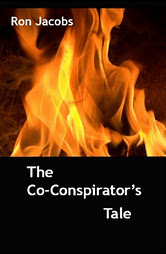It's hard for some of us who were around to remember and even more difficult for those who weren't to believe, but youth culture was once considered to be a revolutionary phenomenon . Of course, we didn't call it youth culture (that was a media catch phrase), but looking back, that's what it was. Indeed, that's part of the reason why it didn't last like we wanted it to. We couldn't figure out how to maintain it once we got older.
So, capitalism took over and turned the whole thing into a commodity. Some groups and individuals that were politically inclined understood the revolutionary nature of a culture that opposed imperial war and racism and, more importantly, that challenged these phenomenon with their bodies and minds in the streets. Their attempts to organize this varied from the somewhat fumbling attempts of the Weatherman to the humor inflected approach of the Yippies. Then there were the White Panthers.
The brainchild of John and Leni Sinclair and a dozen or so other residents of Ann Arbor, the White Panthers were a counterculture revolutionary kernel that understood that in order to change the system one needed to not only change the economics and distribution of power, one also had to change the culture. John Sinclair ended up in prison not long after the White Panthers were formed. he was sentenced to ten years for giving two joints of marijuana to a woman who was a undercover narcotics officer.
The White Panthers (and their successor the Rainbow People's Party) worked in alliance with the Yippies and the Weather Underground and represented the aspirations of thousands of youth across North America during their brief existence. They put on rock concerts and festivals, managed the rock group MC5, operated food cooperatives and a newspaper, and yet their greatest lasting achievement is probably the book penned by John Sinclair himself--Guitar Army.
A collection of writings on rock and roll, youth culture of the 1960s and 1970s, the formation of the White Panthers and a myriad of other rants and reviews, Guitar Army is being re-released by Feral House Publishing of Los Angeles. This book is a freakin' manifesto of the times. Naturally, some of it is dated in terms of context and the language overblown at times, but the discussions of the potential of culture to change people's thinking and the corporate world's understanding of that still ring true. Any modern rock or hiphop artist who really believes in the power of music to change the world should read this book. And, even more importantly, they should heed this book! So should those who listen and dance.
John Sinclair, who nowadays spends his time in Amsterdam and on the road with his band, The Blues Scholars, is a true believer in the power of rock and roll to change the world. Although the times have certainly changed since the first time such a thing seemed a political possibility in the western world, the fact remains that rock music changes lives every day. Think of the first time you heard the Rolling Stones' Beggars' Banquet disc. Or maybe it was "Hurricane" by Bob Dylan. Or maybe something even older by Mr. Dylan. Maybe it was the Clash's "White Riot" or a tune from Rage Against the Machine. Or Sly Stone and his band singing "Stand!" Or maybe even "Johnny B. Goode." Or something from the MC5. Whatever the song was, you gotta' admit that rock and roll changed your life.
The difference between these personal epiphanies and the program of cultural revolution that the White Panthers, and millions of others fought for thirty--forty years ago is that they made it into a political program with the goal of revolution the end. In the cultural realm of rock and roll this meant disconnecting the channels of distribution from the system of capital and the minds of the audience away from those of passive consumers. It meant connecting the record corporations to their holdings in the war machine and challenging them.
It meant hooking up with the Black Panther Party and working in the white community for the liberation of blacks and other oppressed people in the United States. It meant taking it all into the streets and using the music as a means to change the way one thinks and the way the world works. It meant that while the music and the culture that it created was important, there had to be radical economic and political change, too. The answer to this assault on the powers that were was jail time for the organizers, big record contracts for the bands, police attacks on the concerts and communities where the counterculture gathered, and Richard Nixon and Spiro Agnew--two establishment guys who really, really didn't get it.
(Note: You can view every article as one long page if you sign up as an Advocate Member, or higher).





